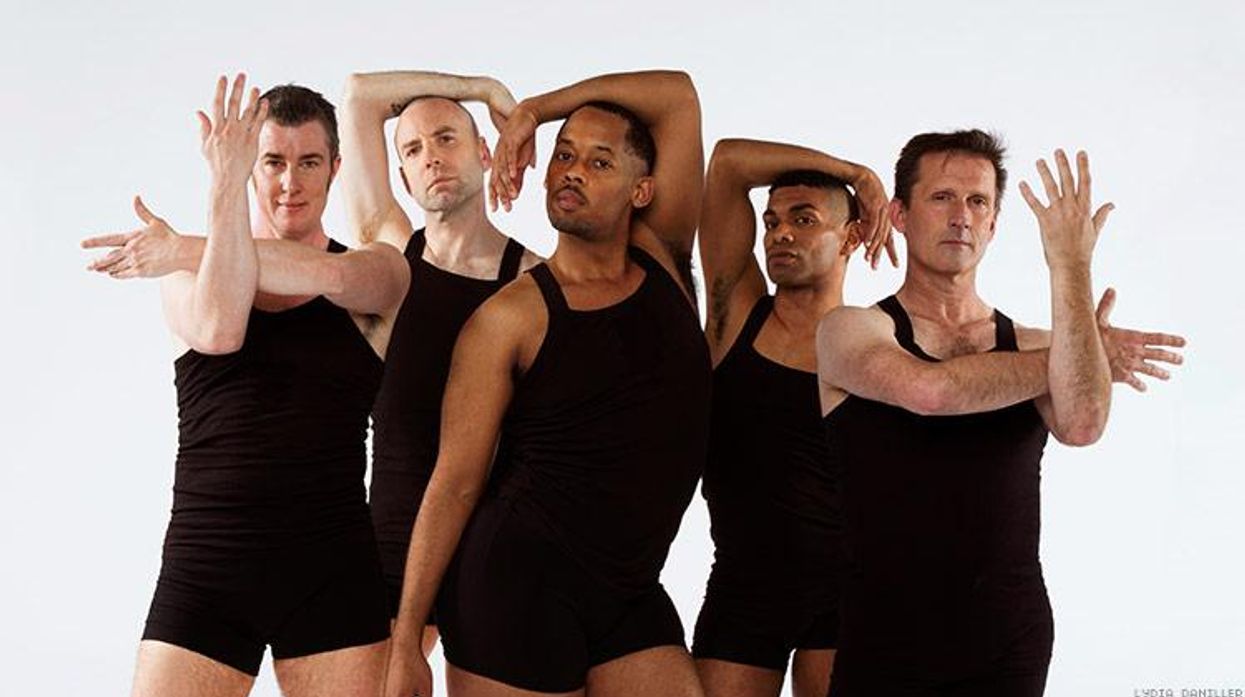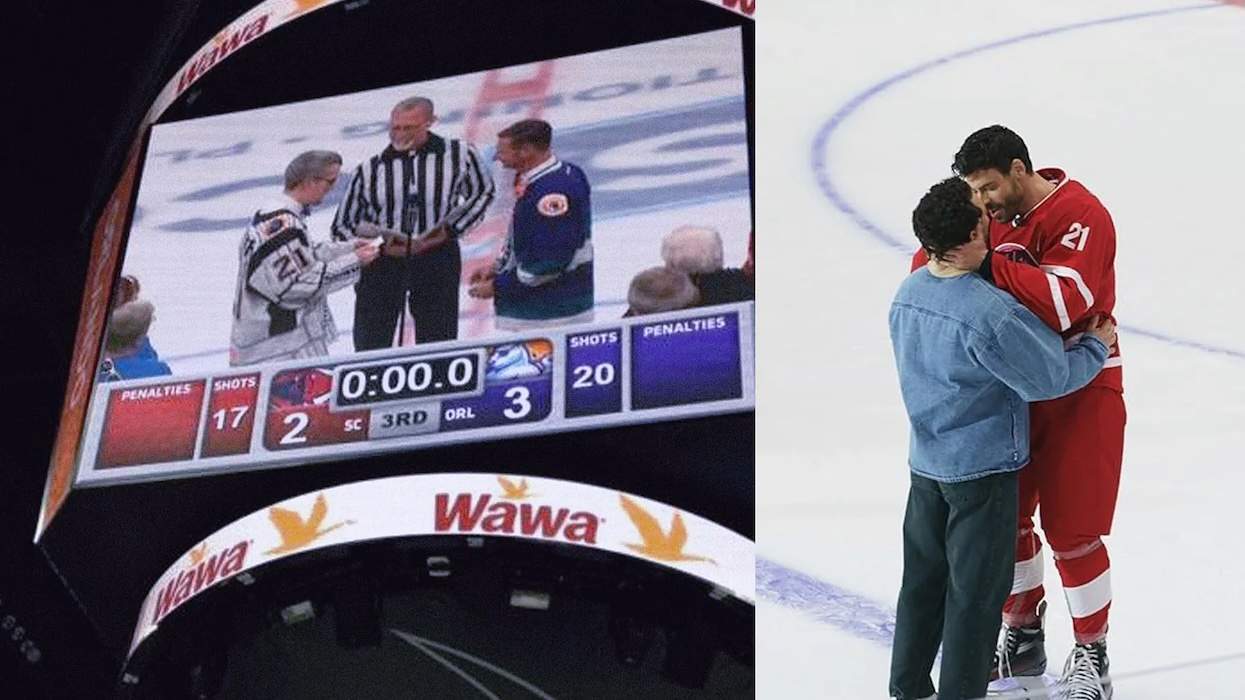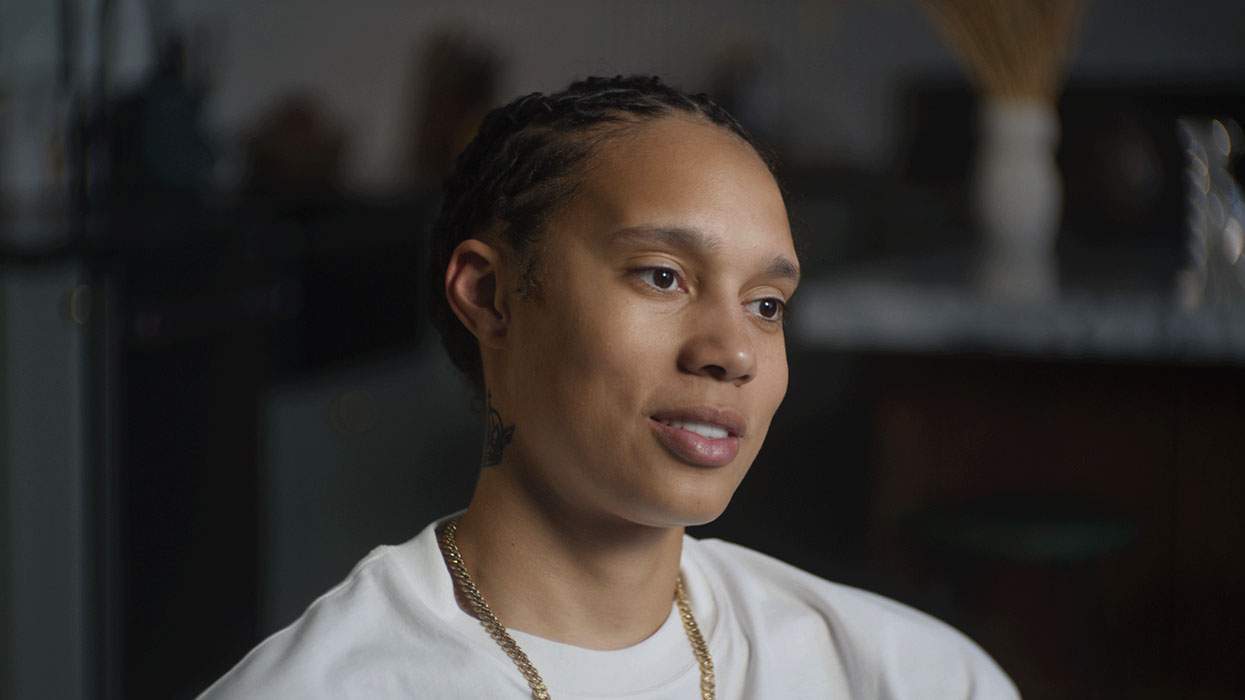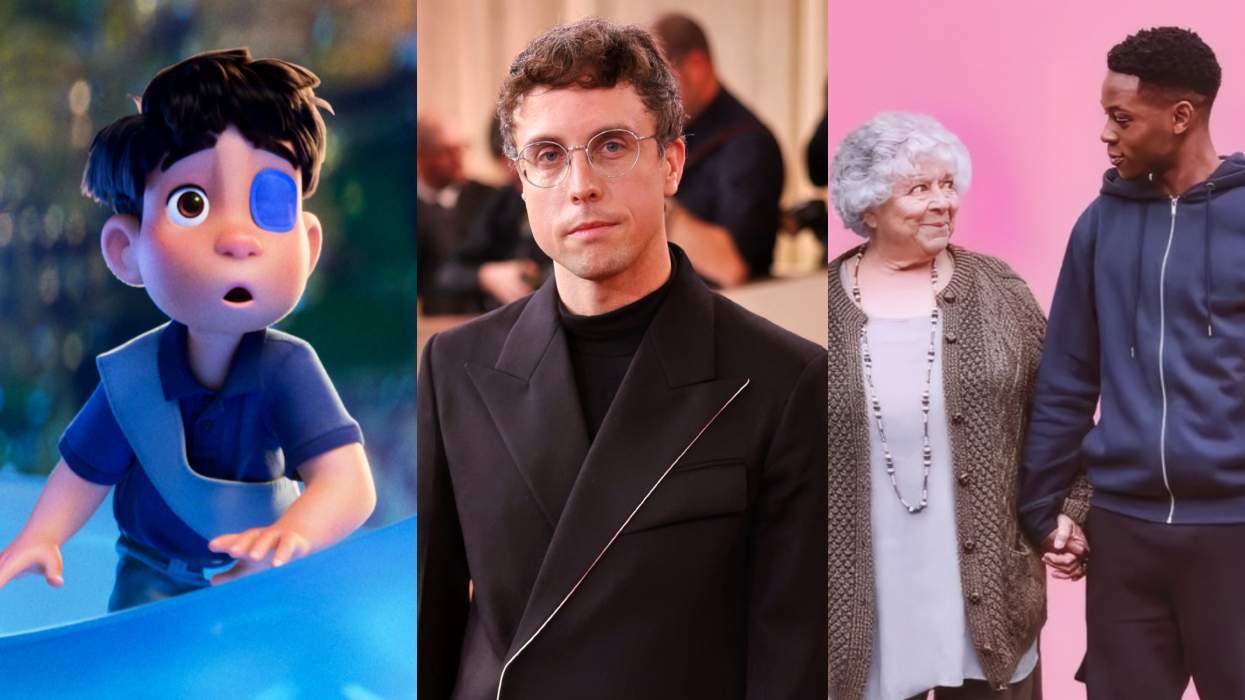Sean Dorsey thinks boys are in trouble. Not the way that some right-wingers do as they bemoan the diminished straight white American man. Nor in the way that sees all problems with masculinity as rooted in cisgender ignorance. No, Dorsey thinks all kind of boys -- including queer boys, trans boys, "ex-boys and future-boys" -- are in trouble. He blames our cultural baggage: toxic masculinity, femphobia, denying ourselves emotional connections, viewing others as sexual objects, and the need to exert power over others. And with his newest dance performance, Boys in Trouble, Dorsey offers a way out of that trouble: a way that centers queer and people of color perspectives.
The award-winning transgender dancer is one of the most widely celebrated LGBT choreographers in the country today. He's received three Isadora Duncan Dance Awards and has been granted major commissions from the National Endowment for the Arts, National Dance Project, New England Foundation for the Arts, and William and Flora Hewlett Foundation. This June, Dorsey will make history as the first U.S. transgender artist presented by the Joyce Theater in New York City.
"This is a big deal!" Dorsey exclaims. He's not just talking about the honor of having the Joyce present Sean Dorsey Dance's The Missing Generation, which gives voice to the collective loss of the AIDS epidemic. He explains, "It's extra powerful for me because I interviewed lots of longtime survivors in New York and can't wait to bring the work home to them!" (Dorsey toured the country for two years collecting stories from people living with HIV before he composed The Missing Generation.)
After the San Francisco premiere of Boys in Trouble, his company launches a 20-city tour, which will visit a wide range of locales, including Atlanta, Maui, Los Angeles, Pittsburgh, and Austin as well as Washington, D.C.; Whitewater, Wis.; Reston, Va.; Burlington, Vt.; and the Bates Dance Festival, in Lewiston, Maine.
But before any of that, Dorsey sat down with The Advocate to talk about masculinity, Boys in Trouble, racism, and more:
The Advocate: I love that you're taking on masculinity right now. It seems like such a timely discussion.
Dorsey: When I launched my creative process for this show two years ago, I couldn't have imagined how timely [it] would become. Toxic masculinity, attacks on trans and queer rights, sexual harassment -- none of these things are new, but what is new is that mainstream culture is finally being forced to name and reckon with these things.
I'm also proud that this project firmly places trans and queer perspectives on masculinity, gender, and race at the center. In most cultural conversations, trans/queer voices are an addendum; here, we are the conversation. And we're really up front about that -- this is sweaty full-throttle dance, intimate storytelling, and super physical theater that is loudly, proudly trans and queer.
What would you say was your most surprising insight about masculinity?
To create Boys in Trouble, I spent a year hosting community engagement activities like trans-supportive movement classes, community forums, and self-expression workshops for people on the masculine spectrum: trans guys, butches, cisgender gay, bi, queer men, non-binary people, and genderqueer people. One of the deepest things I experienced in these gatherings was how universally shame -- and especially body shame -- impacts us all. It cuts across identity and experience, and it's one of the core themes of the show. This wasn't surprising, because I've heard this from people all across the country as I've taught and toured my work, but it was particularly moving in the context of building this show.
What do you think trans and gender-nonconforming people bring to the discussion of masculinity?
So much. Cisgender and heterosexual people are having a "moment" right now -- they are starting to realize that gender constructs are problematic, and that masculinity is, well, toxic. Well, they could have just asked trans and gender-nonconforming people about this a long time ago and we would have started on the road to healing a lot sooner!
As a trans person, I have traversed many genders: being socialized and brought up as a girl, navigating a decade as a nonhormonal trans person -- and being harassed on a daily basis [because of it], then another decade on hormones and "passing" but not remotely identifying as "a man." Trans and queer folks have so much incredible, smart, rich, wise, and insightful consciousness to share around masculinity and gender.
What does race have to do with masculinity?
Everything -- and that truth is central to this project. When I felt called to do a show about masculinity, the first thing I knew was that my artistic investigation had to be intersectional. The existence of masculinity and the patriarchy itself are predicated upon the structures of white supremacy, whiteness, and racism. This country was built on invasion, genocide, slavery, segregation, internment camps, and forced sterilization; and today [we're adding] racist plans for a border wall and anti-brown and anti-black deportations.
As a white person, I have made a commitment to talk to other white people about white supremacy and racism. Every. Single. Day. Us white people get defensive really easily, and we are generally more comfortable talking about "racism" than white supremacy. But nothing is going to change unless we name ourselves, our "whiteness," and white supremacy as the culprit. It's like talking about domestic violence without naming the perpetrator: you can't run around saying "I'm Anti-Bruise" and "Stop Broken Bones" without naming the perpetrator of the violence.
This comes through in Boys in Trouble, in some very emotional and very physical ways, and then in some super irreverent humor -- the section of the show called "Let's Talk About Whiteness!" This is intense stuff, and sometimes humor is a beautiful way to crack open our hearts and have a real conversation.
If boys are in trouble, what's the answer or way out of that trouble?
Well, boys are in trouble. All kinds of boys -- including ex-boys and future-boys -- and we're in trouble because everything in our culture tells us to disconnect from our own bodies, disconnect from touching and loving each other, and seek validation in power "over," or in silencing others, or ourselves. Shame lays underneath and drives all of this. And fear. And everyone's deep longing for connection, for joy, for love, for being our full, whole, authentic selves.
The way out of trouble, then, is through re-connection, starting with our own hurt and trauma, but then expanding outward to our healing; and to joy, love, reconnection with others, to expanding the narrow, narrow band we are allowed to express ourselves and our gender in.
What do you most want potential audiences to know about the show?
If you are terrified of modern dance or think you hate it, come to Boys in Trouble! This is not the kind of modern dance that sends you running from the room: this is accessible, beautiful, relevant dance theater that you will be able to understand and relate to. We use story and humor to make these dances very human. If you love dance but think you don't like work with "a message," come to Boys in Trouble! This is exquisite, award-winning dance by a company of stunning dancers.
And if you don't think that a transgender dance artist has anything universal to say to cisgender or lesbian, gay, bi or straight audiences, or that you won't be moved to tears by this work because you're not trans, you're so wrong. But what a glorious and heart-rending way to find out you're wrong: by sitting down in your seat, feeling the lights dim, and witnessing gorgeous, powerful, transformative dance theater that will leave you altered. I absolutely guarantee it.















